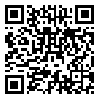1. Wang TY, Huang CH. The performance on a computerized attention assessment system between children with and without learning disabilities. Procedia-Social and Behavioral Sciences. 2012;64:202-208. [
DOI:10.1016/j.sbspro.2012.11.024]
2. Swanson HL, Kehler, P, Jerman O. Working memory, strategy knowledge, and strategy instruction in children with reading disabilities. Journal of Learning Disabilities. 2010;43(1):2447. [
DOI:10.1177/0022219409338743]
3. Kakabaraee K, Arjmandnia AA, Afrooz G. The study of awareness and capability of primary school teachers in identifying students with learning disability in the province of Kermanshah, Procedia-Social and Behavioral Sciences. 2012;46:2615-2619. [
DOI:10.1016/j.sbspro.2012.05.534]
4. Naderi E, Seif Naraghi M. Learning Disorders. Tehran: Amir Kabir pub; 2012. [Persian]
5. Gnji H. Psychopathology based on dsm5. Tehran: Arasbaran pub; 2013. [Persian]
6. Shahim S. Comparison of social skills and behavioral problems in two groups of normal children with learning disabilities at home and at school. Journal of Psychology & Education. 2003;33(1):121-138. [Persian]
7. Lagasse AB. Effects of a music therapy group intervention on enhancing social skills in children with autism. Journal of Music Therapy. 2014;51(3):250-275. [
DOI:10.1093/jmt/thu012]
8. Gresham FM, Watson TS, Skinner CH. Functional behavioral assessment: Principles, procedures, and future directions. School Psychology Review. 2001;30(2):150-172.
9. Mafra H. Development of learning and social skills in children with learning disabilities: An educational intervention program. Procedia-Social and Behavioral Sciences. 2015;209:221-228. [
DOI:10.1016/j.sbspro.2015.11.220]
10. Chambers R, Gullone E, Allen NB. Mindful Emotion Regulation: On Integrative Review, Clinical Psychology Review. 2009;29(6):560-572. [
DOI:10.1016/j.cpr.2009.06.005]
11. Hagh Ranjbar F,Kakavand A, Danesh E. Comparison of self-efficacy, emotional disturbances and loneliness in learning disabilities and normal students. Journal of Applied Psychology. 2012;5(4): 42-58.
12. Linnebrink EA, Pintrich PR. The role of self-efficacy beliefs in student engagement and learning in the classroom. Regarding & Writing Quarterly. 2003;19(2):119-137. [
DOI:10.1080/10573560308223]
13. Zajacova A, Lynch SM, Espenshade TJ. Self efficacy, stress, and academic success in college. Research in Higher Education. 2005;46(6):678-706. [
DOI:10.1007/s11162-004-4139-z]
14. Sun JC, Rueda R. Situational interest, computer self-efficacy and self-regulation: Their impact on student engagement in distance education. British Journal of Educational Technology. 2012;43(2):191-204. [
DOI:10.1111/j.1467-8535.2010.01157.x]
15. Semple RJ, Lee J. Mindfulness-based cognitive therapy for children, applications across the lifespan. 2014.
16. Perry Parrish C, Copeland Linder N, Webb L, Sibinga EM. mindfulness-based approaches for children and youth. Current Problems in Pediatric and Adolescent Health Care. 2016;46(6):172-178. [
DOI:10.1016/j.cppeds.2015.12.006]
17. Miller CJ, Brooker B. Mindfulness programming for parents and teachers of children with ADHD. Complementary Therapies in Clinical Practice. 2017;28:108-115. [
DOI:10.1016/j.ctcp.2017.05.015]
18. Jimenez SS, Niles BL, Park CL. A mindfulness model of affect regulation and depressive symptoms: Positive emotions, mood regulation expectancies, and self-acceptance as regulatory mechanisms. Personality and Individual Differences. 2010;49(6):645-650. [
DOI:10.1016/j.paid.2010.05.041]
19. Shapiro SL, Carlson LE, Astin JA, Freedman B. Mechanisms of mindfulness. Journal of Clinical Psychology. 2006;62(3):373-386. [
DOI:10.1002/jclp.20237]
20. Segal ZV, Williams JMG, Teasdale JD. Mindfulness-based cognitive therapy for depression: A new approach to preventing relaps. Cognitive Behavioral Therapy Book Review. 2007;3:351.
21. Grossman P, Niemann L, Schmidt S, Walach H. Mindfulness-based stress reduction and health benefits: A meta-analysis. Journal of Psychosomatic Research. 2004;57(1):35-43. [
DOI:10.1016/S0022-3999(03)00573-7]
22. Klassen RM, Lynch SL. Self-efficacy from the perspective of adolescents with learning disabilities and their specialist teachers. Journal of Learning Disabilities. 2007;40(6):494-507. [
DOI:10.1177/00222194070400060201] [
PMID]
23. Lee Swanson H, Harris K, Graham S. Handbook of learning disabilities. 2nd ed. New York: Guilford Press; 2013. [
DOI:10.1177/00222194070400060201]
24. Delavar A. Research method in psychology and educational sciences. Tehran: Virayesh pub; 1999. [Persian]
25. Burdic D, Lcswr BCN. Mindfulness skills for kids and teens. PESI Publishing and Media; 2014.
26. Matson JL, Rotatori AF, Helsel WJ. Development of a rating scale to measure social skills in children: The Matson Evaluation of Social Skills with Youngsters (MESSY). Behavior Research and Therapy. 1983;21(4):335-340. [
DOI:10.1016/0005-7967(83)90001-3]
27. Yosefi F, Khair M. A study on the reliability and the validity of the matson evaluation of social skills with youngstres (MESSY) and sex differences in social skills of high school students in Shiraz, Iran. Journal of Social Sciences and Humanities of Shiraz University. 2002;18(2):159-170. [Persian]
28. Farmer RF, Sundberg ND. Boredom proneness the development and correlates of a new scale. Journal of Personality Assessment. 1986;50(1):4-17. [
DOI:10.1207/s15327752jpa5001_2]
29. Muris P, Schmidt H, Lambrichs R, Meesters C. Protective and vulnerability factors of depression in normal adolescents. Behavior Research and Theory. 2001;39(5):555-565. [
DOI:10.1016/S0005-7967(00)00026-7]
30. Tahmassian K, Jazayeri A, Mohammad Khani P, Ghazi Tabatabayi M. Direct & indirect impact of social self-efficacy on adolescents depression: Social-efficacy pathways to depression. Social Welfare. 2006;5(19):113-124. [Persian]
31. Ritvo P, Vora K, Irvine J, et al. Reductions in negative automatic thought in students attending mindfulness tutorials predicts increased life satisfaction. International Journal of Educational Psychology. 2013;2(3):272-296.
32. Ames CS, Richardson J, Payne S, Smith P, Leigh E. Mindfulness- based cognitive therapy for depression in adolescents. Child and Adolescent Mental Health. 2014;19(1):74-78. [
DOI:10.1111/camh.12034]
33. Bieling PJ, Hawley LL, Bloch RT, et al. Treatment-specific changes in decentering following mindfulness based cognitive therapy versus antidepressant medication or placebo for prevention of depressive relapse. Journal of Consulting and Clinical Psychology. 2012;80(3):365. http://doi.org/10.1037/a0027483 [
DOI:10.1037/a0027483]
34. Goldin PR, Gross JJ. Effects of mindfulness-based stress reduction (MBSR) on emotion regulation in social anxiety disorder. Emotion. 2010;10:83-91. [
DOI:10.1037/a0018441]







